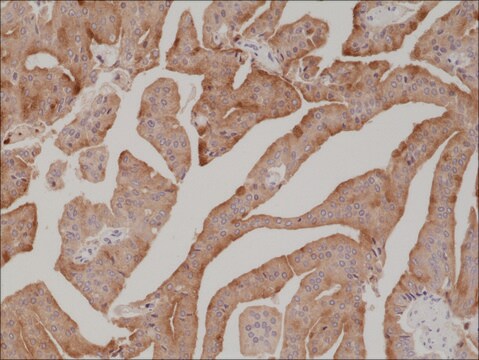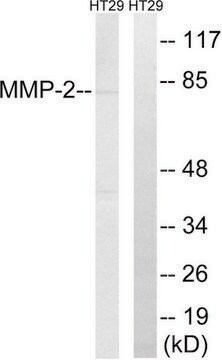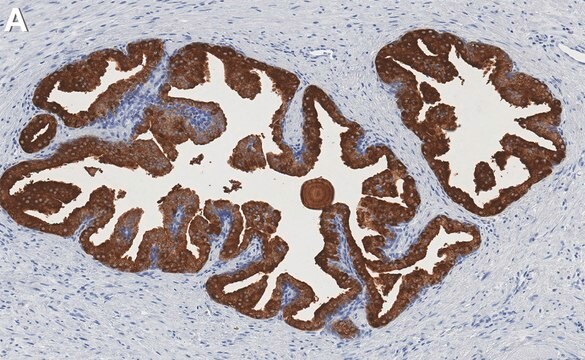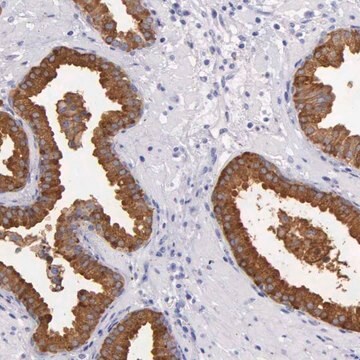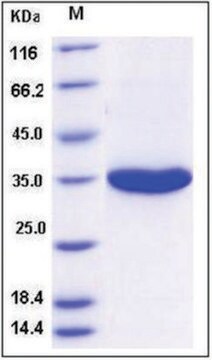SAB4501531
Anti-Prostate-specific Antigen antibody produced in rabbit
affinity isolated antibody
Sinônimo(s):
γ-seminoprotein, P-30 antigen, kallikrein- 3, kallikrein-related peptidase 3, prostate-specific antigen
About This Item
Produtos recomendados
fonte biológica
rabbit
conjugado
unconjugated
forma do anticorpo
affinity isolated antibody
tipo de produto de anticorpo
primary antibodies
clone
polyclonal
forma
buffered aqueous solution
peso molecular
antigen 28 kDa
reatividade de espécies
human
concentração
~1 mg/mL
técnica(s)
ELISA: 1:20000
immunohistochemistry: 1:50-1:100
western blot: 1:500-1:1000
nº de adesão NCBI
nº de adesão UniProt
Condições de expedição
wet ice
temperatura de armazenamento
−20°C
Informações sobre genes
human ... KLK3(354)
Descrição geral
Imunogênio
Immunogen Range: 81-130
Ações bioquímicas/fisiológicas
Características e benefícios
forma física
Exoneração de responsabilidade
Não está encontrando o produto certo?
Experimente o nosso Ferramenta de seleção de produtos.
Código de classe de armazenamento
10 - Combustible liquids
Classe de risco de água (WGK)
nwg
Ponto de fulgor (°F)
Not applicable
Ponto de fulgor (°C)
Not applicable
Certificados de análise (COA)
Busque Certificados de análise (COA) digitando o Número do Lote do produto. Os números de lote e remessa podem ser encontrados no rótulo de um produto após a palavra “Lot” ou “Batch”.
Já possui este produto?
Encontre a documentação dos produtos que você adquiriu recentemente na biblioteca de documentos.
Os clientes também visualizaram
Nossa equipe de cientistas tem experiência em todas as áreas de pesquisa, incluindo Life Sciences, ciência de materiais, síntese química, cromatografia, química analítica e muitas outras.
Entre em contato com a assistência técnica
